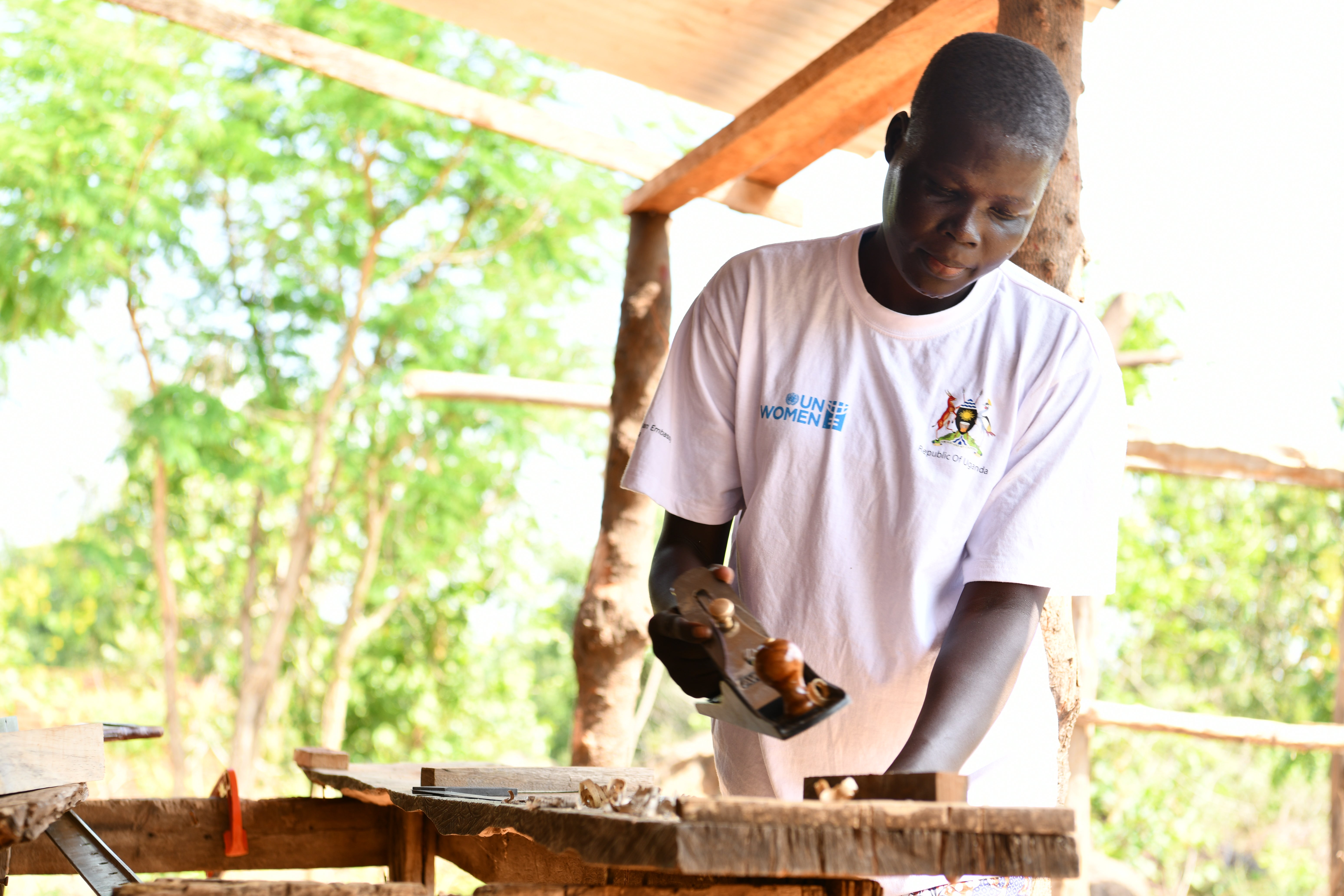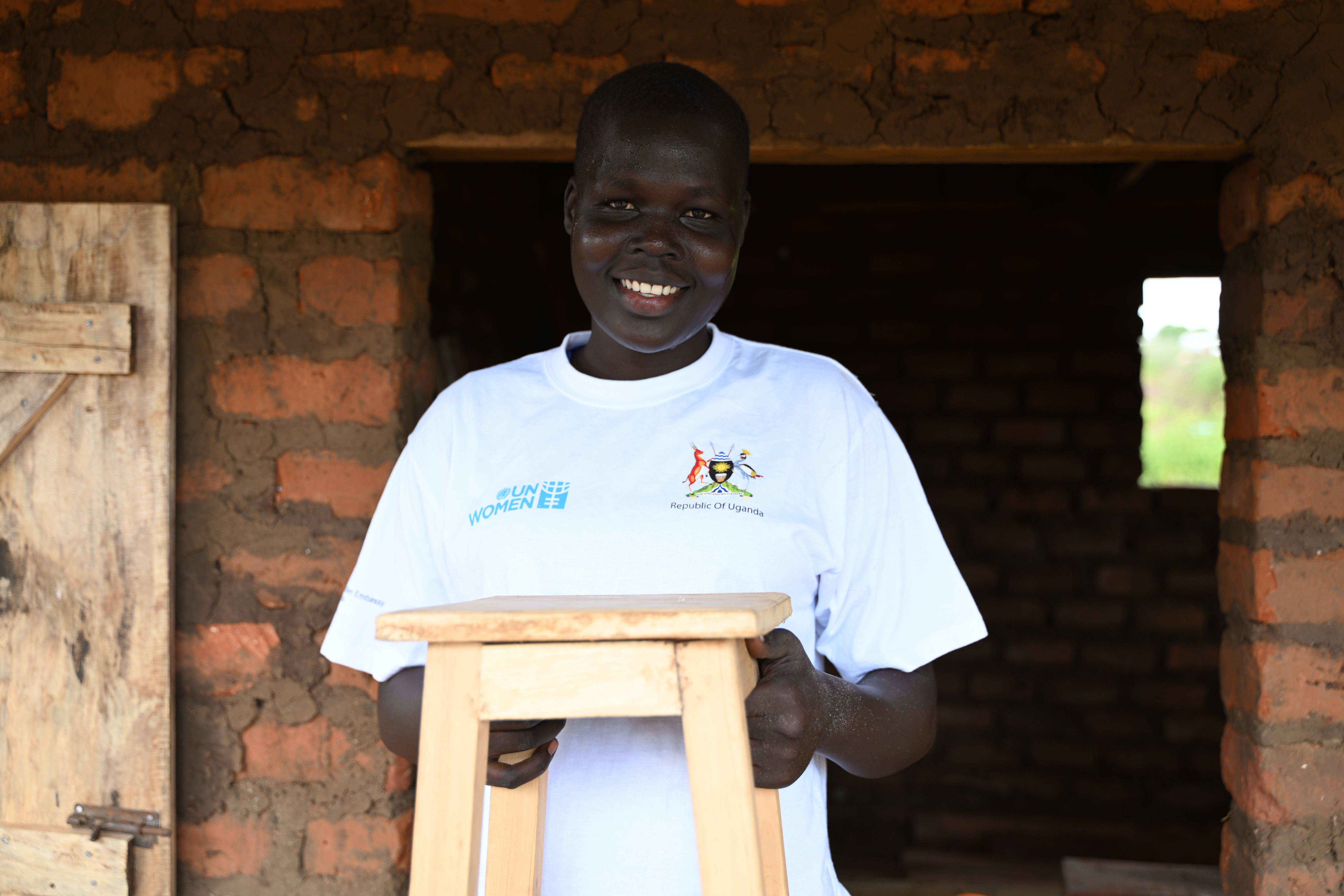From where I stand: There is no trade for men alone…What a man can do, a woman can also do.
Date:

Annet Luka is a 23-year-old South Sudanese refugee living in Omugo settlement in Terego district. Luka is one of the 350 girls from refugee settlements and the host community who were identified in 2023-204 to acquire various skills through UN Women’s second chance education intervention implemented under the Leadership Empowerment Access and Protection (LEAP) project funded by the Government of Norway. Through second chance education, refugee women are gaining skills enabling them to engage in productive activities and rebuild their lives.
I lost my father when I was 5 years old. Shortly after his death, war engulfed our village of Kajo Keji, South Sudan forcing us to flee into Uganda. Since 2017, we have been living in Omugo II refugee settlement in Adjumani district. One of the biggest hurdles I faced was accessing education. While my mother managed to support me through primary and secondary school, there are four siblings to care for and there isn’t enough to support all of us. In 2023, after completing my O’Level education, I had to stay home because we couldn't afford the school fees even though I had passed my exams.
Then, in January 2024, through the community leaders I learned about training opportunities for refugee women and girls. There were a number of courses being offered, and I decided to enroll for carpentry and joinery. I chose carpentry because it's a trade that's not affected by the seasons, making it a reliable source of income. Many girls in my community shy away from carpentry, believing it's only for men. Even my mother initially disapproved, but I explained the benefits to her, and now she supports me. Moreover, before I completed my training, I made some furniture which we are now using at home. Now we have a bench to sit on as a family, something we didn't have before.

What makes me particularly proud is that I'm the only female carpenter in my community. This gives me an edge and I believe that when I establish my own workshop, I will have market. I am still limited by starting capital, but my dream is to start my own carpentry workshop and train other women and girls in the trade. By empowering more females in carpentry, we can work together to challenge stereotypes and build successful careers. Ultimately, I hope my workshop will provide a steady income, allowing me to pursue my long-term dream of becoming a nurse.
Young refugee girls need to embrace vocational skills and not fear to take on any trade including carpentry. There is no trade that is for exclusively reserved for men. What men and boys can do; girls can also do. As refugee women and girls, we should embrace opportunities and get skills to create better lives for ourselves and our communities.